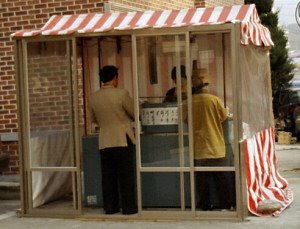"East Berlin incident" of 1967
| The National Institute of Korean History (국사편찬위원회) has researched German documents of the so-called "East Berlin incident" (Tongbaengnim sakôn) of 1967, tells the Hankyoreh. At the time Germany (West Germany) considered severing diplomatic contacts with ROK after several Koreans residing in Germany had been abducted to Korea for charges of spying for DPRK. One of them was even German citizen; perhaps the best known of the abducted was the composer Yun I-sang. Six were given death sentence, Yun among them, but all were released after pressure from Germany and other governments. Germany sent three Korean diplomats packing for being involved in the abduction, but withheld further considerations of severing diplomatic relations after the assassination attempt on Park Chung-hee by DPRK commandos and the Pueblo incident in 1968. Pressuring further on the diplomatic relations issue would have endangered the efforts to release the abducted and hardened the ROK stand, was the German judgement. At the moment the East Berlin incident is mainly remembered as a major spy fabrication incident; what is true though are contacts with DPRK officials for various reasons and unification idealism among the "perpetrators". It's also clear that DPRK cynically took advantage of all that, sending operatives to approach South Koreans in Germany disguised as professors. (A short article in Korean in Donga Ilbo's weekly from '97) (Jo Jung-rae in his novel Han'gang, which also has some of its characters go to Germany in the 60s as nurses, miners and students, depicts one character witnessing ROK and DPRK official holding a meeting in a restaurant back room.) Funnily enough, East Berlin was the place where I knowingly met a Korean person for the first time. That was the last winter of the Berlin Wall; I was on a short vacation in West Berlin with my friend, and from there we could make a day visit to the East without visas. There, on the eastern side of the wall in Brandenburger Tor, was also a North Korean couple. I remember the man admiring my camera, which became a sort of a small joke between my and my friend: Cosina, oo!. Categories at del.icio.us/hunjang: contemp.history • Koreanpolitics |







 • The association; is the number of members really that big? Of wage workers, a mere 11% is organized, but a membership of 440 000 looks like enormous. I'm not aware that the membership would be compulsory as in the case of hairdressers' association, for example.
• The association; is the number of members really that big? Of wage workers, a mere 11% is organized, but a membership of 440 000 looks like enormous. I'm not aware that the membership would be compulsory as in the case of hairdressers' association, for example. 



 It has been interesting to notice that in addition to me at least thinking that there's some of the personal interaction and "neighborhood sense" in that place that I witnessed in Korea, also the barbershop woman talks of the place in the same sense. How all get along well, how the atmosphere between shopkeepers is good etc. The woman is in many senses similar to her colleagues in Korea: assertive, self-confident, talkative - working on someone's hair is a "talking business" (malhanûn changsa) par exellence. Perhaps mostly due to the nature of hairdressing and barbering, making changes on one's outer appearance and being on a physical contact, it cannot but based on steady custom. (Not only shop proprietors rely on steady customers, but customers rely on steady proprietors.) In the case of Ritva's place, I was actually lucky to have been accepted as a customer; she told that she sees right away - with her 40 years' experience - if she can do the hair of a person well. If not, she sends him to another place. That's what a person who owns the shop space and has a steady base of customers can do; work 30 hours a week and be on a vacation for more than a month (or was it two?) a year... Last time I was having a haircut I mentioned about a bag shop around the corner which was having a closing sale. She told me about the keeper man close to 80 years of age. "Yes, I buy bags often from that place, last time two... The lining of one bag got torn, and a bag repair guy visiting the shop fixed it for 5 euros, can you believe? A 20-euro job elsewhere."
It has been interesting to notice that in addition to me at least thinking that there's some of the personal interaction and "neighborhood sense" in that place that I witnessed in Korea, also the barbershop woman talks of the place in the same sense. How all get along well, how the atmosphere between shopkeepers is good etc. The woman is in many senses similar to her colleagues in Korea: assertive, self-confident, talkative - working on someone's hair is a "talking business" (malhanûn changsa) par exellence. Perhaps mostly due to the nature of hairdressing and barbering, making changes on one's outer appearance and being on a physical contact, it cannot but based on steady custom. (Not only shop proprietors rely on steady customers, but customers rely on steady proprietors.) In the case of Ritva's place, I was actually lucky to have been accepted as a customer; she told that she sees right away - with her 40 years' experience - if she can do the hair of a person well. If not, she sends him to another place. That's what a person who owns the shop space and has a steady base of customers can do; work 30 hours a week and be on a vacation for more than a month (or was it two?) a year... Last time I was having a haircut I mentioned about a bag shop around the corner which was having a closing sale. She told me about the keeper man close to 80 years of age. "Yes, I buy bags often from that place, last time two... The lining of one bag got torn, and a bag repair guy visiting the shop fixed it for 5 euros, can you believe? A 20-euro job elsewhere." 

 Photo: Brothels in Sillim-dong, close to the Sillim subway station on the side of the Dorim-cheon. (c) AL 2000
Photo: Brothels in Sillim-dong, close to the Sillim subway station on the side of the Dorim-cheon. (c) AL 2000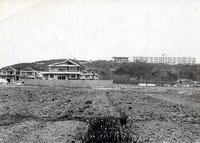
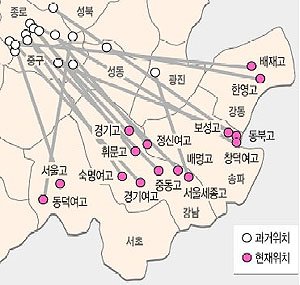
 I thought that I had made a note on the ongoing divorce of the novelist Hwang Seok-yeong (황석영 黃晳暎), but I couldn't find any trace. Just to have it as a case of Korean divorce proceedings, with the additional cultural personality interest (
I thought that I had made a note on the ongoing divorce of the novelist Hwang Seok-yeong (황석영 黃晳暎), but I couldn't find any trace. Just to have it as a case of Korean divorce proceedings, with the additional cultural personality interest (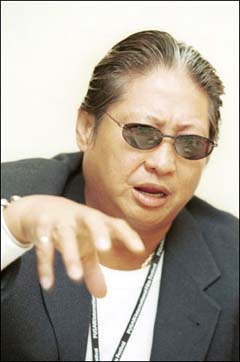 Sammo Hung has come to Busan for the first time for the Pusan International Film Festival (
Sammo Hung has come to Busan for the first time for the Pusan International Film Festival (
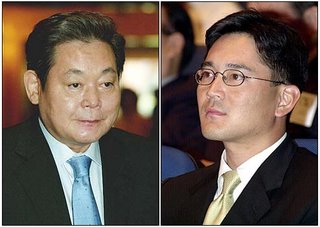
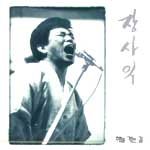 The singer
The singer 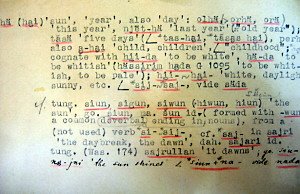 Part 1, where the above comes out, will be aired on KBS1 this Saturday (Oct 9) at 8-9 pm.
Part 1, where the above comes out, will be aired on KBS1 this Saturday (Oct 9) at 8-9 pm. 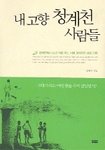 And now to the heart of the northern part of Seoul, or to the very heart of the historical Seoul.
And now to the heart of the northern part of Seoul, or to the very heart of the historical Seoul. 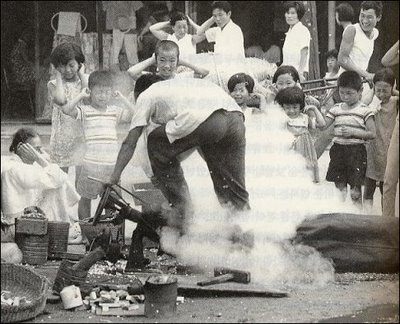
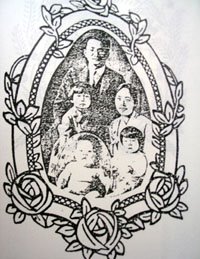 인터넷에서 헤매다가 흥미로운 문서를 찾게 됐다. 일제시대에 출간된 잡지 <혜성>에서 1929년에 나온 독자기고 두 편인데, 하나는 "연령도 취미도 성격도 도무지 맞지 않아서" 애인이 있다는 것은 바라는 교사이고 다른 하나는 자신의 실직 때문에 아내가 종업원으로 다니는 것에서 불안감을 느끼는 남자의 글입니다. 제 디스크스페이스에다 넣어 두었으니 전문을 읽기 위해서 링크를 클릭.
인터넷에서 헤매다가 흥미로운 문서를 찾게 됐다. 일제시대에 출간된 잡지 <혜성>에서 1929년에 나온 독자기고 두 편인데, 하나는 "연령도 취미도 성격도 도무지 맞지 않아서" 애인이 있다는 것은 바라는 교사이고 다른 하나는 자신의 실직 때문에 아내가 종업원으로 다니는 것에서 불안감을 느끼는 남자의 글입니다. 제 디스크스페이스에다 넣어 두었으니 전문을 읽기 위해서 링크를 클릭.
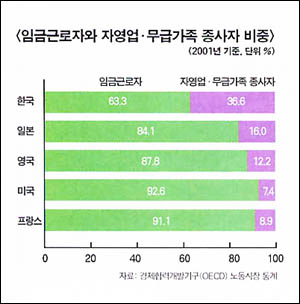 The following are the reasons why the formal unemployment rate stays so low, while the actual rate is estimated to be twice the official figure, over 7%.
The following are the reasons why the formal unemployment rate stays so low, while the actual rate is estimated to be twice the official figure, over 7%. 